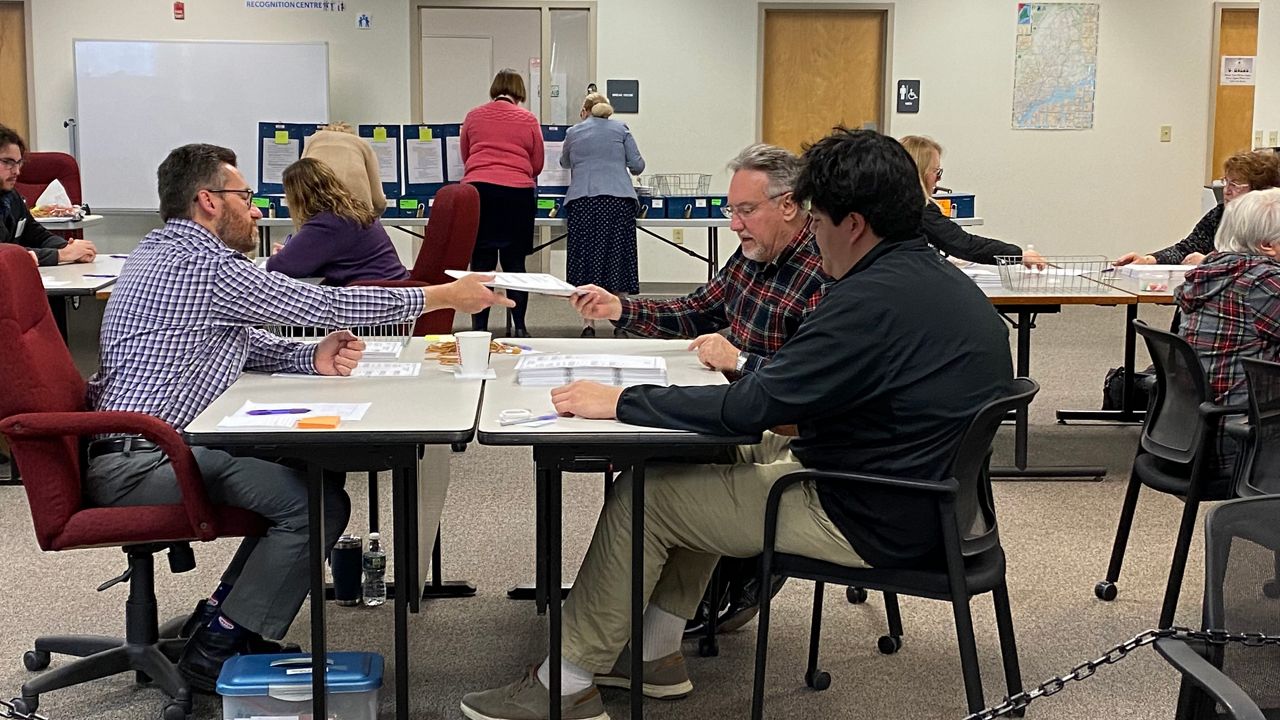A proposed constitutional amendment on the Nov. 7 ballot seeks to give state officials a chance to run elections without also having to certify citizen petitions at the same time.
Secretary of State Shenna Bellows asked lawmakers to approve the change following the 2022 election cycle, when two citizen petitions landed on her desk during the fall election season.
The Maine Constitution required her office to certify the petitions within 30 days, which meant overtime, canceled vacations, the hiring of temporary workers and the use of state employees from other agencies to get the job done, Bellows said.
“It almost killed us,” she said.
The timing meant 11 staffers “found themselves in an unprecedented situation — having to review over 159,000 signatures across two citizen initiatives within 30 calendar days while simultaneously preparing for a general election and then having to conduct a ranked-choice central count, several recounts, and the final statewide tabulation,” Deputy Secretary of State Julie Flynn told lawmakers in March.
In response, two-thirds of lawmakers, which means support from Democrats, Republicans and independents, approved the constitutional amendment, which will appear on the ballot as Question 5.
It reads: “Do you favor amending the Constitution of Maine to change the time period for judicial review of the validity of written petitions from within 100 days from the date of filing to within 100 business days from the date of filing of a written petition in the office of the Secretary of State, with an exception for petitions filed within 30 calendar days before or after a general election?”
Behind the question is legislative approval of a blackout period meaning elections staff will not be required to review petitions in the 30 days before an election or the 30 days after.
Petitioners will still be allowed to hand them in to the state anytime.
Part of the tension with the current system comes from the timing of November elections coupled with the beginning of the legislative session in December or January.
Those who sponsor citizen initiatives, such as the four on the ballot this November, need to have their signatures submitted to the state within 25 or 50 days of the start of the session — depending on whether it’s the first or second regular session — for their idea to be considered by lawmakers.
The change from “100 days” to “100 business days” will mean if a decision by the Secretary of State’s Office is challenged in court, state elections workers won’t have to work weekends or holidays to fulfill their obligations, Bellows said.
“It doesn’t change people’s right to petition at all,” she said.



